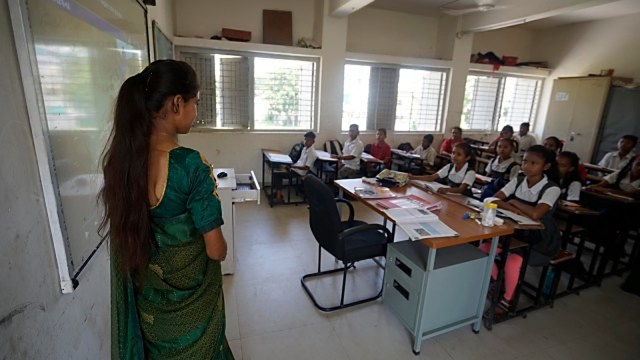
As a teacher, I have always believed that there is no such thing as “value-neutral” or “apolitical” education. Education is not just “skill- learning”, or the acquisition of a “technique” for doing “practical” things. To be truly educated means the ability to think critically, understand the dynamics of power in society, and imagine a just and humane world. In other words, I have no hesitation in saying that young students — particularly in colleges and universities — ought to think politically, and evolve as dialogic citizens who can debate on issues confronting the nation, acquire the maturity to participate in a non-violent mode of conflict resolution, and take part in social movements for creating a better world.
However, I am equally aware of the fact that the ugliness we see in the prevalent political culture and the resultant erosion of civility from the public sphere have begun to affect the kind of politics our students are engaging in. It really saddens me as I see a young student slapping her teacher in Delhi University. Or, for that matter, it frightens me when I see the students of Jawaharlal Nehru University — the university that was once known for its culture of nuanced debates and conversations — getting involved in physical violence. In fact, everywhere — from metropolitan universities to regional universities, we are witnessing this decadence.
Possibly, this degeneration is inevitable. After all, when ignorance is weaponised, critical thinking is seen as a crime, the spirit of reasoned dialogue is seen as weakness, and carefully curated or politically engineered stereotypes divide us into binaries — “deshbhakts” vs “jihadis”, or “leftists” vs “rightists”. What else can we expect? And if young students, too, surrender their creative agency and critical thinking, it helps the status quo. Let them fight, abuse one another, and abhor the idea of what Paulo Freire would have regarded as a “problem posing” education; meanwhile, let the hegemony of the ruling regime remain intact.
Yet, as a teacher, it becomes exceedingly difficult for me to give up my commitment to the pedagogy of hope. Hence, even amid the decadence I see in our universities, I will appeal to the student community to be truly awakened, raise critical questions relating to education, politics, culture and economy, see beyond mere sloganeering, enrich themselves through rigorous research and study, and generate a meaningful debate — the kind of debate that is hardly seen in today’s political culture. Instead of slapping a teacher, using brute power as a mode of mobilisation, or getting obsessed with whether vegetarian or non-vegetarian food should be served in the hostel mess, let them debate what is really affecting their destiny.
For instance, I feel like appealing to college/university students to come to the streets, raise three fundamental issues, and generate the much-needed hope in emancipatory politics and transformative education. First, the prevalent political and economic system has already caused severe damage to the culture of learning as we see the neoliberal, communal assault on education. As the neoliberal doctrine reduces education into a market-driven and techno-managerial skill, and transforms a young learner into a mere “resource” for the techno-corporate empire, our universities begin to lose their liberating potential — the task of nurturing dialogic and awakened citizens for creating a just, humane and democratic world. A new politics of knowledge emerges; it devalues liberal arts, humanities and social sciences; it tends to equate what is worth learning with robotics, data sciences and artificial intelligence; and it refuses to see anything higher and nobler than placements and salary packages. In other words, it kills the very idea of studentship — a student as a seeker or a wanderer. Likewise, the spirit of free enquiry is sacrificed, and academic freedom loses its meaning. Is it, therefore, surprising that according to the 2025 Academic Freedom Index Report, India ranks 156th out of 179 countries?
Second, with the steady growth of fancy private universities (and now “foreign” universities), we see the simultaneous decline of public universities. If public universities continue to decline, a large section of Indian society — economically deprived and socially marginalised — will remain deprived of good quality/affordable education. In fact, our chronic obsession with grading, ranking and quantifying academic products — from publications to seminars, from the citation index to patents — has further undermined the value of engaged pedagogy, social responsibility and education as a liberating experience. It is like selling a university as a “brand”, transforming a teacher into a “service provider” and reducing a student into a consumer. In a way, it legitimises a kind of meritocracy that privileges only the rich and the powerful.
And third, isn’t it important for young students to reflect on the danger of the kind of politics that stimulates the masses through the virus of hyper-nationalism and a militant religious identity, and imagine a new kind of politics that seeks freedom from rising authoritarianism and the cult of narcissism?
As I see young students getting trapped into the vicious cycle of decadent politics, I begin to ask myself: Where have all these debates disappeared?
The writer taught sociology at JNU